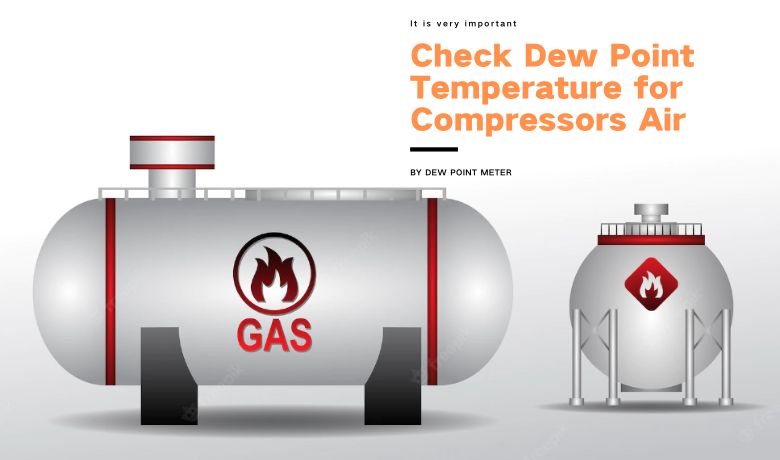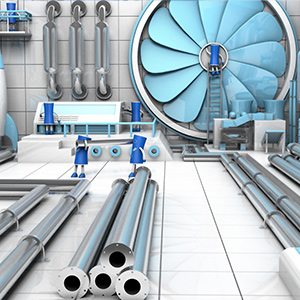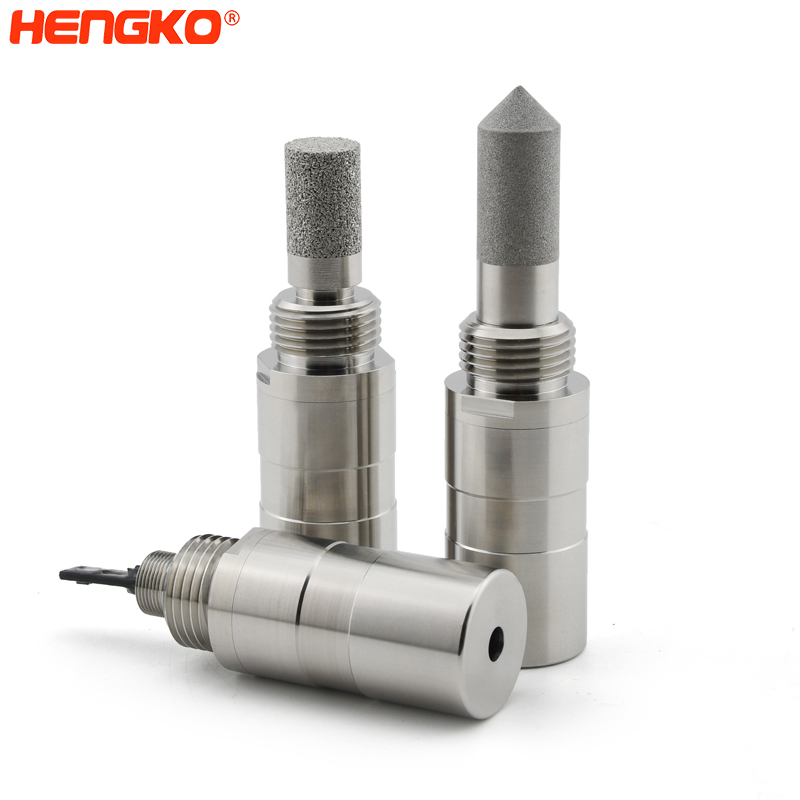Why Must to Check Dew Point Temperature for Compressors Air ?
Importance of Dew Point Temperature in Air Compressors
To ensure your air compressor's optimal performance and longevity, a seemingly minor detail like the dew point temperature plays a critical role. Let's delve deeper into why it's essential to check the dew point temperature for compressor air.
Understanding Dew Point Temperature
The concept of dew point might take you back to your high school physics lessons. Yet, its relevance extends beyond academic textbooks and plays a pivotal role in the functioning of our daily mechanical systems, including air compressors.
Concept of Dew Point
The dew point is the temperature at which the air becomes saturated with moisture, leading to condensation. Picture a cold beverage can on a hot day. Noticed the water droplets forming outside the can? That's a visual representation of reaching the dew point.
Dew Point in Compressed Air Systems
Now, think of a compressor as that cold beverage can, except in a much larger, industrial scenario. When compressed air cools past its dew point inside a compressor, condensation occurs, leading to unwanted moisture within the system.
Why You Should Check the Dew Point Temperature for Compressors Air ?
When using an air compressor, there are many variables that are critical to the quality and effectiveness of compressed air. When dry air is required, the ability to continuously and accurately measure dew point is a key factor in your operation.
The dew point is the temperature at which water vapor in compressed air ceases to be vapor and changes to liquid form (condensation).When your compressor compresses air, the stored air becomes very warm, which means it contains a lot of water vapor.Whit the air cools, the steam changes into condensed water. Having water in compressed air is never a good thing, it can be a catastrophic problem.
Relevance of Dew Point Temperature to Compressors
The dew point temperature has a significant influence on the efficiency, lifespan, and safety of your air compressors. Let's understand this better.
Compressor Efficiency
Moisture can cause rust and corrosion, hindering the compressor's operational efficiency. It's much like a car engine running on dirty oil – not a desirable scenario, is it?
Compressor Lifespan
Over time, excess moisture can lead to severe damage, reducing the compressor's lifespan. Imagine this as a chain rusting over time and eventually breaking – the last thing you want for your compressor.
Safety Considerations
Safety, always a prime concern, can also be compromised. Moisture might lead to the formation of ice in the system in cold conditions, posing a potential hazard. It's like walking on a slippery road – the risk of an accident is high, right?
Large amounts of water in compressors or compressor air lines can cause bacteria or mold to form and moisture to enter the compressed air.This makes compressed air useless in most applications and cannot be used by food and beverage companies to package or enhance food. Pharmaceutical or medical companies also cannot use contaminated or humid air in hospitals or any medical application.Because condensation usually destroys compressed air in most applications, it is important to ensure that the dew point temperature of the equipment is monitored while it is running.
In order to monitor the dew point of the compressor, the dew point detector or dew point transmitter is usually installed at the outlet or inlet of the pipeline to measure the dew point. HENGKO compressed air dew point transmitter is easy to install, has the characteristics of small size, light weight, can be quickly and easily installed in a narrow space or pipe.Digital signal processing and transmission ensure the high precision and reliability of the product, and the signal attenuation and interference of transmission cable will not affect the measurement accuracy.
Measurement of Dew Point Temperature
Just as a doctor checks your temperature to assess your health, monitoring the dew point temperature is vital for the wellbeing of your compressor.
Types of Dew Point Sensors
From chilled mirrors to capacitive sensors, various instruments can help monitor the dew point temperature. It's like having a variety of thermometers to check body temperature.
Sensor Calibration and Accuracy
The key to effective dew point measurement lies in regular calibration and ensuring the sensor's accuracy. It's akin to ensuring that your kitchen scales are accurately calibrated – because no one wants a flop in their baking experiment!
For most compressed air applications, measuring dew point and ensuring that your compressed air is not reaching its dew point is critical to keeping your business running efficiently. Dryers are essential for keeping compressed air cool and free of moisture and contaminants.
Then if have any questions or interested for our Dew Point Temperature Measurement Meter, please feel free to contact us by email ka@hengko.com
or you are welcome to to contact us page to send inquiry by form.
Maintaining Desired Dew Point Temperature
Now that we've understood the significance of the dew point temperature, how do we control it?
Types of Air Dryers
Different types of air dryers, like refrigerated, desiccant, and membrane dryers, can help maintain the desired dew point temperature. Choosing the right one is like selecting the perfect climate control system for your home to ensure maximum comfort.
Regular Maintenance and Servicing
Routine checks and timely servicing can go a long way in ensuring the correct dew point temperature and increasing your compressor's efficiency and lifespan. It's as crucial as getting your car serviced to keep it running smoothly.
Real-World Examples of Dew Point Temperature Importance
To truly grasp the importance of checking the dew point temperature, let's consider a couple of real-world examples.
Case Study 1: Industrial Plant
An industrial plant faced frequent breakdowns in their air compressor system due to high dew point temperature, leading to reduced production hours. After installing a proper air dryer and regular monitoring, their downtime reduced significantly.
Case Study 2: HVAC System
An HVAC system in a commercial building suffered from mold and mildew issues due to poor dew point temperature control. Introduction of an advanced dew point sensor, coupled with regular maintenance, resolved the issue and improved air quality.
FAQs
1. Why is dew point temperature important for air compressors?
Dew point temperature is crucial as it affects the efficiency, lifespan, and safety of air compressors. High moisture content can lead to rust, corrosion, and system failures.
2. How can I control the dew point temperature in my air compressor?
Using appropriate air dryers and regular maintenance are effective ways to control dew point temperature.
3. What tools are used to measure dew point temperature?
Various sensors like chilled mirror sensors, capacitive sensors, etc., are used to measure dew point temperature in air compressors.
4. Can high dew point temperature affect my compressor's lifespan?
Yes, a consistently high dew point temperature leads to increased moisture, potentially reducing your compressor's lifespan due to rust and corrosion.
5. Is it necessary to regularly check the dew point temperature?
Absolutely! Regular checks help maintain optimal conditions for your compressor, just like regular health checks contribute to your wellbeing.



